- About Us
- Columns
- Letters
- Cartoons
- The Udder Limits
- Archives
- Ezy Reading Archive
- 2024 Cud Archives
- 2023 Cud Archives
- 2022 Cud Archives
- 2021 Cud Archives
- 2020 Cud Archives
- 2015-2019
- 2010-2014
- 2004-2009
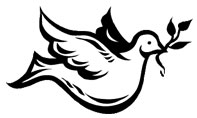 |
'John Paul the Great'? The Legacy of Pope John Paul II |
At the close of one of the longest and most active papacies in history it's time to assess the reign of Pope John Paul II, the first non'Italian Pope in more than four centuries.
Much has been said of the man's life and achievements during his time in office, but what is a simple assessment of the major issues that will weigh in when determining his legacy
Social Justice
Few can deny that the Pope was dedicated to securing social justice and freedom from oppression, and this was certainly a hallmark of his papacy. As a young Karol Wojtyla in Poland he was witness to the human rights violations of Nazi and, later, Soviet rule and was keenly aware and sensitive to the lives of those caught under such conditions. He is credited with having been an influential and inspirational anti'communist for many living behind the Iron Curtain.
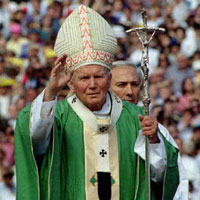 Perhaps it is from this background in Poland, then, that the Pope made such a concerted effort to travel to and vocally support the oppressed in all corners of the globe. Within his own Catholic Church he put an end to many of the ancient alliances between the wealthy, the military, and the ultra'conservative Catholic hierarchies of South America.
Perhaps it is from this background in Poland, then, that the Pope made such a concerted effort to travel to and vocally support the oppressed in all corners of the globe. Within his own Catholic Church he put an end to many of the ancient alliances between the wealthy, the military, and the ultra'conservative Catholic hierarchies of South America.
Unlike any other Pope before him, he changed expectations of what a Pope is to be, and made certain his opinion on prevailing crises and developments in the world were heard. He was a strong opponent of capital punishment and more recently made clear his dissatisfaction with the Bush administration's foray into Iraq. He embarked upon his own war on capitalism and what he saw to be the moral decline of Western democracy and values.
An Apologist
Again unique to the reign of John Paul II was his willingness to apologise for past wrongs committed by the Catholic Church, and to engender better relations between all faiths and peoples. He apologised for the tragedies of the Crusades, past Catholic animosity towards Jewish people, and the horrors of the Inquisition and Nazi collaboration. He even apologised for the injustices meted out by the Catholic Church to Galileo.
And, though his steadfast commitment to conservative Catholic dogma meant his church's relationship with Protestants, Jews, Muslims and others would never be in complete harmony 'far from it' John Paul II displayed a sense of goodwill and respect that had rarely been seen from a leader within the Catholic Church. Notably, he was also the first Pope to set foot inside a mosque.
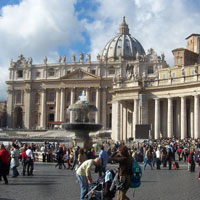 A new global figure that changed the face of the papacy
A new global figure that changed the face of the papacy
Perhaps one of the most significant developments to take place under John Paul II's reign was his elevation of the papal office into a truly global role that became globally recognised. This was in part due to his vocal opinions on international and political affairs, but had as much to do with his engaging personality and, most of all, was a reflection of the modern age. Forever gone was a Pope operating almost purely from the confines of the Vatican. The Pope became, famously, the most travelled man to hold that position, and reached huge audiences both in person and via the mass media. His books, poems and CD's were bestsellers, and his image became instantly recognisable.
He is said to have likened himself to be something of a 'universal pastor', and certainly any successors will now need a grasp of global politics, language, culture and the media if they are to adequately fill his shoes.
Conservatism
For many, however, Pope John Paul the II's rule was marked above all by his unwavering commitment to conservative values and refusal of modern practices. His Encyclicals consistently asserted that just because divorce, abortion, artificial birth control and homosexuality were increasingly becoming accepted in the wider world, this did not mean that the Catholic Church would correspondingly feel compelled to endorse such practices as correct.
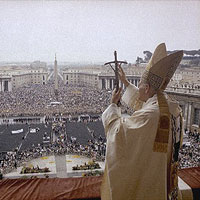 While the Catholic Church and the Pope's conservative values expanded dramatically into the Third World, and especially Asia and Africa during his term, elsewhere the Pope's staunch conservatism created a sharp division within the Catholic Church, particularly in Europe. His position on abortion and homosexuality alienated thousands and severely dated the credibility of Catholic doctrine as the Church moved into the new millennium.
While the Catholic Church and the Pope's conservative values expanded dramatically into the Third World, and especially Asia and Africa during his term, elsewhere the Pope's staunch conservatism created a sharp division within the Catholic Church, particularly in Europe. His position on abortion and homosexuality alienated thousands and severely dated the credibility of Catholic doctrine as the Church moved into the new millennium.
The Pope's stiff opposition to artificial contraception was likely a product of his upbringing in Poland, where he cultivated a belief that value and dignity should be allowed for any human life, no matter how developed. But his opposition 'he once referred to contraception as 'evil'' was arguably well out of step with the AIDS epidemic. Indeed, several commentators have gone so far as to suggest that the blood of thousands of African AIDS victims could be found on the Pope's own hands as it would be impossible to determine how many people decided against using contraception upon his word.
But if the Pope lost ground in Europe largely due to his conservative values, in the United States and Ireland it was especially due to the Vatican's incompetent handling of the priest sexual abuse scandals. It has been posited by some that in fact the Pope's enthusiasm for his many trips abroad to spread the Catholic message left many of his administrative tasks back home inadequately fulfilled. Yet by the time of the sexual abuse saga the Pope's ill health had limited his travel schedule. Rather, the continued centralisation of his own Church may have been as much to blame for the Vatican's slow response than anything else.
While John Paul may have tackled aforementioned problems within the Church in regions such as South America, during his reign he kept the rule of the Catholic Church completely centralised and challenges to the authority of the Church's central authority, the Curia, was not tolerated. Independent powers for Bishops were kept in check. Topics such as the role of women in the Church and celibacy of the priesthood were instantly denied consideration. With the aide of Cardinal Ratzinger (a leading candidate for the new papacy) some of the Vatican's most intelligent and inspired theologian thinkers were removed whenever the slightest challenge to the Pope's teachings was discovered.
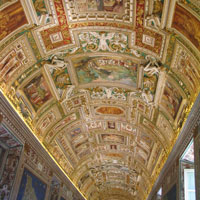 Consequently, many of the priests holding high posts in the Catholic Church around the world were either limited in their capacity to respond to the sexual abuse claims or incompetent 'yes' men such as Massachusetts' Cardinal Bernard Law. Meanwhile, countless talented priests of the requisite committed faith with strong leadership and community skills but of marginal liberal ideology that might have managed the situation better were long gone in a wave of Ratzinger purges.
Consequently, many of the priests holding high posts in the Catholic Church around the world were either limited in their capacity to respond to the sexual abuse claims or incompetent 'yes' men such as Massachusetts' Cardinal Bernard Law. Meanwhile, countless talented priests of the requisite committed faith with strong leadership and community skills but of marginal liberal ideology that might have managed the situation better were long gone in a wave of Ratzinger purges.
So what of the legacy?
Undeniably, it will be difficult for any successor to Pope John Paul II to exercise any sort of ideology that is not within the strict conservative guidelines set down during this recent reign. Perhaps more significantly, as it was the Pope himself that appointed so many of the current Cardinals vying for the top position, he appointed conservative value
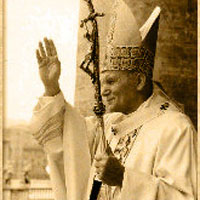
men who are unlikely to lean toward liberal changes anyway. His appointment of blindingly loyal but practically inadequate men in appointments around the world may continue to mar his administrative record, however.
Many of his supporters will likely now want to rush the Pope's canonization as a means of cementing his conservative values and preserving his legacy' a legacy they will identify as being that of a man who firmly resisted a modern era tide of secularism and 'new morality'.
For others, the legacy of Pope John Paul II will undeniably be that of staunch Catholic conservatism and a refusal to recognise the need for change in line with the rest of the world. Either way, that conservatism has been so firmly laid down in the Catholic Church by John Paul II that it will remain there for decades to come.
